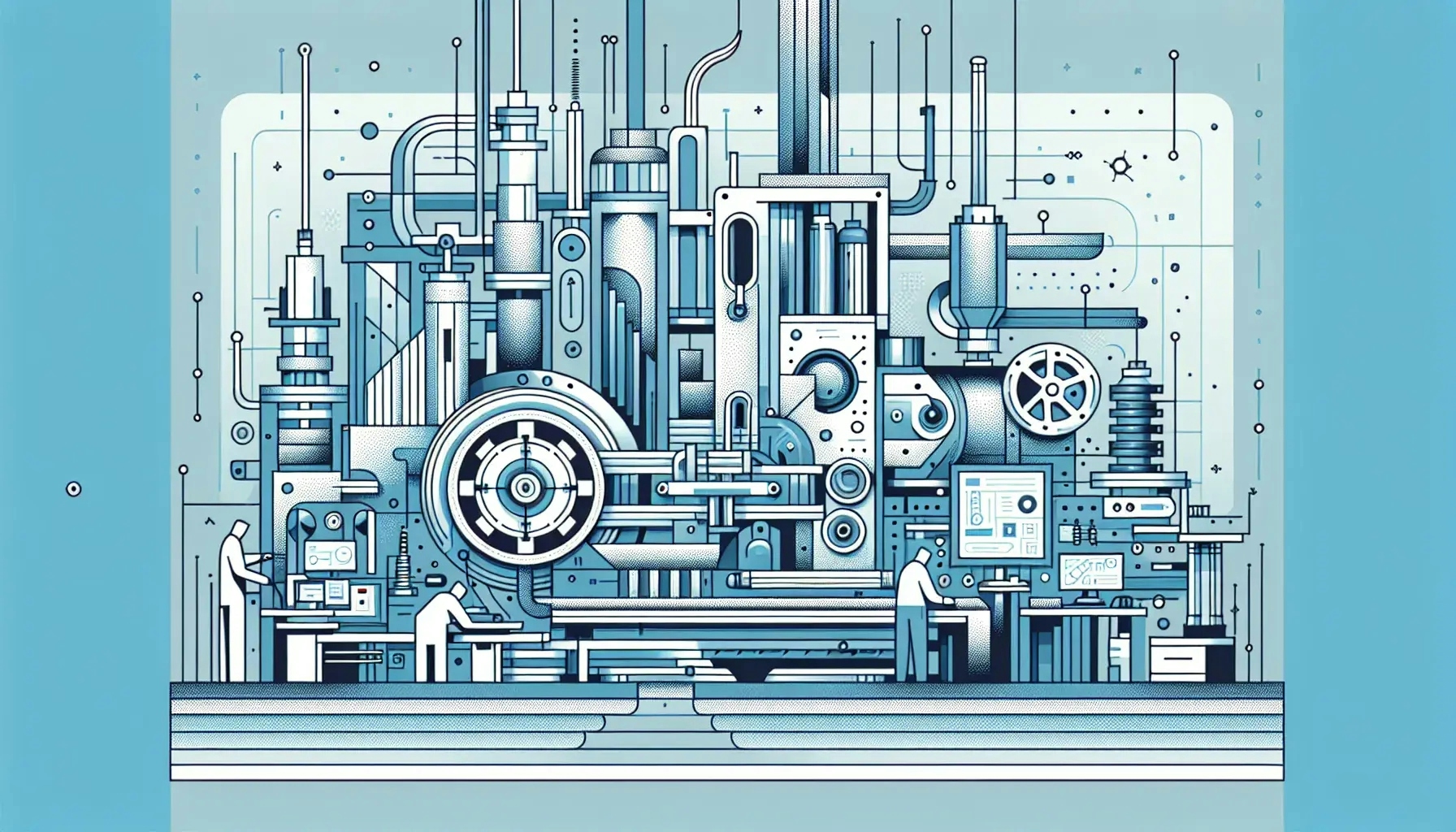Welcome to our deep dive into the world of modern manufacturing processes. As we navigate the 21st century, we encounter a plethora of challenges that have emerged due to technological advancements, globalization, and changing consumer demands. This blog post aims to shed light on these challenges and offer insights into how manufacturers can adapt and thrive in this ever-evolving landscape.
The Digital Transformation Dilemma
The digital revolution has not spared the manufacturing sector. Manufacturers are now expected to incorporate advanced technologies into their processes. However, this digital transformation presents its own set of challenges.
The first hurdle is the high cost of implementing new technologies. Small and medium-sized manufacturers often struggle to afford the initial investment required for digital transformation. This financial challenge is further exacerbated by the ongoing costs of maintaining and updating these technologies.
Another challenge lies in the lack of digital skills among the workforce. The adoption of advanced technologies necessitates a workforce that is adept at using these tools. However, many manufacturers face a skills gap, with their current employees lacking the necessary digital skills. This necessitates further investment in training and development, adding to the financial burden.
The Sustainability Challenge
The modern consumer is increasingly conscious of the environmental impact of the products they consume. This has led to a growing demand for sustainable manufacturing processes. However, achieving sustainability in manufacturing is easier said than done.
Manufacturers often face a trade-off between sustainability and profitability. Implementing eco-friendly processes and materials can be costly, and these costs can eat into profit margins. Furthermore, there is often a lack of clear guidelines and standards for sustainable manufacturing, making it difficult for manufacturers to know what steps to take.
Another challenge is the lack of infrastructure for recycling and waste management. Many manufacturers struggle to find cost-effective and efficient ways to dispose of waste or recycle materials. This is particularly challenging for manufacturers in developing countries, where such infrastructure is often lacking.
The Globalization Conundrum
Globalization has opened up new markets for manufacturers, but it has also brought its own set of challenges.
One of the main challenges is the increased competition. Manufacturers now have to compete with companies from all over the world, many of which can offer lower prices due to lower labor and production costs. This puts pressure on manufacturers to reduce their own costs, often at the expense of quality or worker conditions.
Another challenge is the complexity of managing a global supply chain. Manufacturers have to coordinate with suppliers and distributors in different countries, each with its own regulations, customs procedures, and potential risks. This requires a high level of expertise and can be a major source of stress and uncertainty.
The Quality Assurance Quandary
In the modern manufacturing landscape, maintaining high-quality standards is paramount. However, achieving consistent quality is a significant challenge.
One of the main issues is the complexity of modern manufacturing processes. With so many variables involved, it can be difficult to identify and control the factors that affect quality. This is further complicated by the use of advanced technologies, which can introduce new variables and potential points of failure.
Another issue is the high cost of quality assurance. Implementing robust quality control systems and conducting regular inspections and tests can be expensive. However, the cost of not doing so can be even higher, in the form of product recalls, damage to the brand's reputation, and loss of customer trust.
The Workforce Woes
The manufacturing sector is facing a looming workforce crisis. The aging workforce is a significant concern, with many experienced workers nearing retirement and not enough young people entering the field to replace them.
This is compounded by the perception of manufacturing jobs as dirty, dangerous, and low-paying. Many young people prefer to pursue careers in other sectors, leading to a shortage of skilled workers in manufacturing.
Another issue is the changing nature of manufacturing jobs due to technological advancements. Many traditional manufacturing jobs are being automated, leading to job losses. At the same time, new jobs are being created that require advanced technical skills, leading to a skills gap.
The Regulatory Rigmarole
Manufacturers have to navigate a complex web of regulations and standards. These regulations can vary by country, making it challenging for manufacturers that operate in multiple markets.
Compliance with these regulations can be costly and time-consuming. Manufacturers have to invest in compliance systems, conduct regular audits, and stay up-to-date with changes in regulations. Non-compliance can result in hefty fines and damage to the company's reputation.
Another challenge is the lack of clarity and consistency in regulations. Manufacturers often have to interpret vague or ambiguous regulations, leading to uncertainty and risk. This is particularly challenging for small and medium-sized manufacturers, which may not have the resources to hire regulatory experts.
Overcoming the Challenges in Modern Manufacturing
The challenges in modern manufacturing processes are numerous and complex. However, they are not insurmountable. With the right strategies and a willingness to adapt and innovate, manufacturers can navigate these challenges and thrive in the modern manufacturing landscape. The key is to view these challenges not as obstacles, but as opportunities for growth and improvement.

